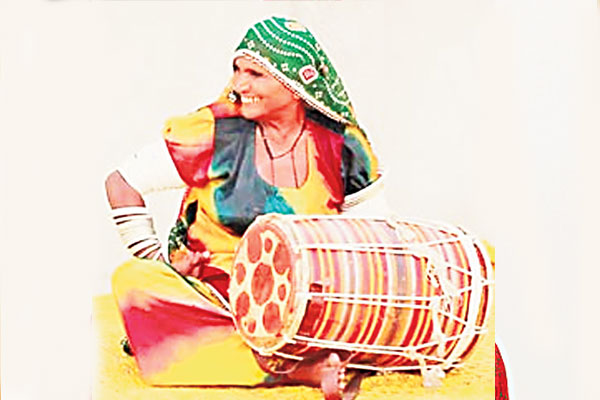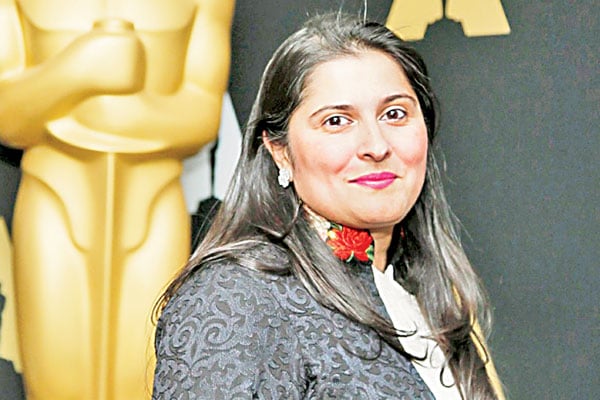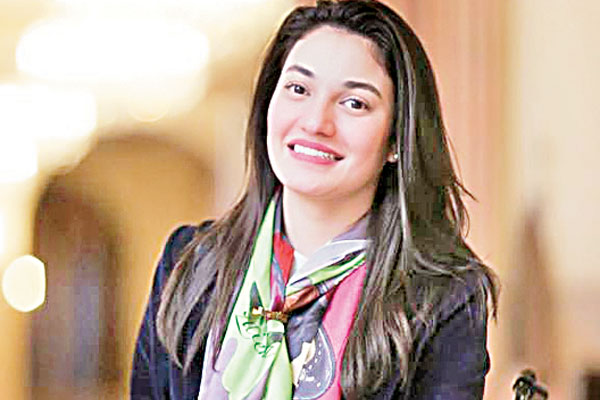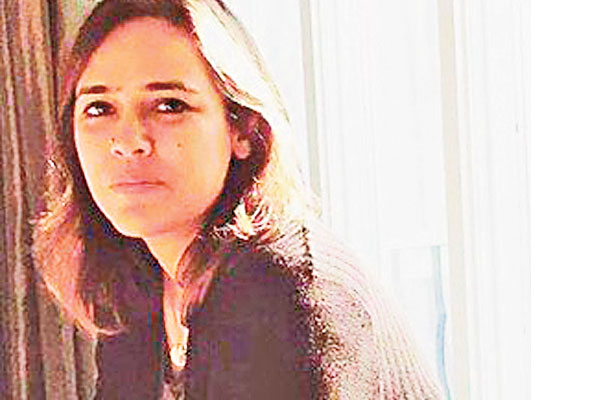Pakistani women have taken big strides in the past year proving that the world needs to start seeing a woman’s success differently. From moving the status quo to pass a bill on protection from abuse and domestic violence to speaking up on their under-representation in government sectors and the judiciary, women have really come forward and proven their real worth in all sorts of fields.
Women’sDaySPECIAL
On account of International Women’s Day, Instep highlights the contributions of five women who have put Pakistan on the global map in the field of media and entertainment.
Pakistani women have taken big strides in the past year proving that the world needs to start seeing a woman’s success differently. From moving the status quo to pass a bill on protection from abuse and domestic violence to speaking up on their under-representation in government sectors and the judiciary, women have really come forward and proven their real worth in all sorts of fields. The entertainment industry has particularly been a breeding ground for power women breaking the bias. Instep lists five women who gave us enough reasons to be proud of as a nation over the past year.
Malala Yousafzai
Malala’s efforts are not hidden from the world. A staunch supporter of girls’ education from an early age despite being deterred by extremist forces to the extent of being shot in the face for it, Malala Yousafzai is the youngest person to ever receive the Nobel Peace Prize. Her motto “one child, one teacher, one book, and one pen [to] change the world” has received immense support from world over including the likes of President Barrack Obama. Her continuous efforts led to more than two million signs on the petition for passing the Right to Free and Compulsory Education Bill – the first of its kind in Pakistan.
Last year saw her life being turned into celluloid in Davis Guggenheim documentary He Named Me Malala, which was lauded by all and sundry in the industry and beyond. The documentary made its debut on television on March 1st and has now been picked up by US-based video-on-demand service Hulu for streaming. It’s a must-watch, this women’s day.
On her 18th birthday, the young Nobel laureate opened a school for Syrian refugee girls in Lebanon. “Today on my first day as an adult, on behalf of the world’s children, I demand of leaders to invest in books instead of bullets,” Malala said in a speech at the opening ceremony.
Mai Dhai

Mai Dhai hails from Tharparkar and often feels like the one with the desert. Whether she is singing ‘Sarak Sarak’ with her folk-band or collaborating with the country’s biggest music star on Coke Studio or hypnotising us with her terrific voice on Lahooti Live Sessions, it’s as if she can do no wrong. With a wealth of gorgeous melodies that have been passed down to her by her mother, Mai is a wonder, a national treasure like no other.
Her command over different dialects is not just impressive but deeply satisfying. With a timeless quality to her songs and a personality that is as warm as it is beautiful, Mai Dhai is not only close to our hearts but gives us hope that cultural icons can be inspiring, honest and truly remarkable in their accomplishments as opposed to those who develop a massive ego, unbearable arrogance or lack of thoughtfulness on sensitive issues.
No matter what the dialect (Urdu, Saraiki or Marwari), Mai is inimitable and a kind of artist who comes along once in a lifetime, if that. In a country as polarised, confused and divisive, there is no better icon than Mai as she reaches new heights of excellence and mystical magic.
– By Maheen Sabeeh
Sharmeen Obaid-Chinoy

Sharmeen Obaid-Chinoy has been an inspiration not just for aspiring filmmakers but the entire nation. The first Pakistani woman to win two Academy Awards – she won the second one this year for A Girl in the River – Sharmeen has been courageously using her skill set to advocate women empowerment and raise concerns over the atrocities they continue to face in this part of the world. While her first documentary Saving Face (2012) shed light on the challenges and struggles of acid attack victims, A Girl in the River brought honour killings to the spotlight prompting Pakistani Prime Minister Mian Mohammad Nawaz Sharif to take note of the issue and work towards protecting women by law. And although the filmmaker has been witness to severe backlash from extremist forces, it was only after her meeting with the PM that the Women Protection Bill was implicated in Punjab.
One of the 11 female directors, from across the world, to have ever won an Oscar for a non-fiction film, and the only woman of colour to win this year’s whitewashed Academy Awards, Chinoy has made more than a dozen multi-award winning films in over 10 countries along with Pakistan’s first animated feature 3 Bahadur, last year. She has already started working on its sequel, due to release later this year. Last year also saw Chinoy produce a documentary on Pakistan’s under-celebrated group of musicians, the Sachal Jazz ensemble, titled the Song of Lahore, which had its world premiere at the Tribeca Film Festival.
Muniba Mazari

She may have lost the ability to walk on her own feet, post a life-threatening car accident, but there is little that can dampen the spirits of Muniba Mazari. At a time when it was easier for her to lose herself to depression, Mazari toughened up and used her emotions to add colours on the canvas. An artist, writer and motivational speaker, Muniba is a woman of many talents.
She was the first wheel-chair bound model for Toni & Guy Pakistan, took over hosting duties at PTV while simultaneously shunning all stereotypes associated with handicapped individuals and has recently been appointed as the UN Women’s Goodwill Ambassador. She is the first Pakistani female to take on the role, and on the job, she will be directly associated with the organisation’s latest movement titled ‘Planet 50-50 by 2030: Step It Up for Gender Equality’.
Enthusiastic and energetic, Mazari recently found a spot on notable international lists, including the BBC’s 100 Influential Women in the World and the Forbes ‘30 Under 30’. Needless to say, Mazari is more of an inspiration because of her positive outlook on life and her urge to challenge life’s shortcomings, despite physical limitations, than just because of her achievements.
Mehreen Jabbar

Pakistani television has been home to countless regressive female characters that only worsen the situation for women in our society but rarely does it depict women as strong, independent, game-changers. Director/filmmaker Mehreen Jabbar specializes in the latter. Jabbar, who loves storytelling, has made a conscious effort of challenging societal taboos and stereotypical mindsets by showing women as powerful beings in her television plays, including Daam and Jackson Heights.
Jabbar’s first feature film Ramchand Pakistani received immense international acclaim and now, after eight years, the talented filmmaker is all set to return to the big screen with a romantic drama Dobara Phir Se but like all of her projects, this, too, will show women in strong characters. Jabbar is also making short film Lala Begum under Zee TV’s latest initiative, Zeal for Unity.
Jabbar has never been shy of speaking her mind and has time and again emphasized on television’s responsibility towards portraying women the right way. “I feel angry because people behind such plays [ones that depict women as regressive and helpless] are being very irresponsible just for the sake of ratings. That’s not enough of a reason to highlight stereotypes and ideas that we as a society need to get rid of,” she told Instep in an earlier interview.